The FARI Conference returns on 17 and 18 November in Brussels, find out more.
An Initiative of
Supported by

FARI’s contributions to shaping AI’s Future at the European AI Week 2025
Author
Sezen Avci
FARI – AI for the Common Good Institute Brussels participated in numerous discussions and workshops during the European AI Week 2025, held in Brussels from March 17 to 21. Organized by FPS BOSA and AI4Belgium under the theme “Innovation vs. Regulation,” the events that took place throughout the week brought together participants to explore the societal, technological, and industrial challenges of the artificial intelligence (AI) era through various activities.
Through nine sessions, FARI engaged in topics ranging from regulatory and economic issues to citizen participation and digital twins, reflecting its commitment to contributing to AI’s development for the common good.
The European AI Week 2025: Bridging Innovation and Regulation for a Responsible AI Future
The European AI Week is a series of events dedicated to artificial intelligence, bringing together Belgian and international stakeholders. Experts, developers, policymakers, and citizens come together for conferences, panel discussions, and workshops to debate AI’s challenges and opportunities. Organized by the FPS BOSA and AI4Belgium, the European AI Week emphasizes an ethical and inclusive approach to AI. This year, it kicked off on March 17 with a keynote session featuring FARI’s managing director Karen Boers, Minister Vanessa Matz, Rob Heyman (VUB, KDM), and other key figures. The discussions stressed AI’s importance and the need for innovation and regulation to evolve together, emphasizing that AI must align with European values—responsible, trustworthy, and sustainable.
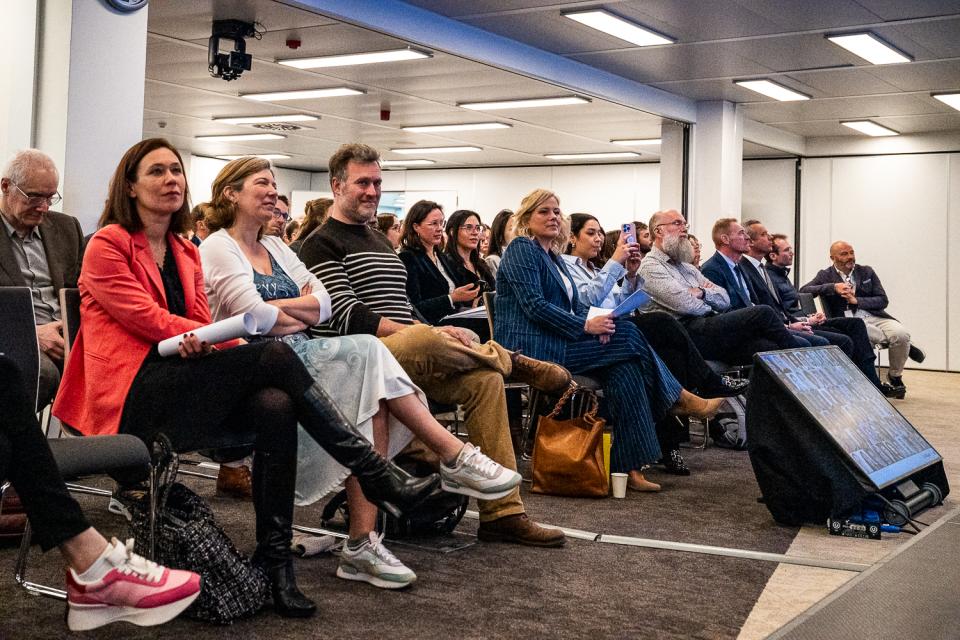
© Pictures: FPS Bosa / AI4Belgium
Later that week, Karen Boers also joined a panel with Professor Nicolas Van Zeebroeck (ULB, Solvay Business School) to discuss AI literacy, emphasizing lifelong learning and collaboration to adapt to AI’s rapid evolution on March 19. They stressed that AI should enhance human capabilities, not replace them.
FARI Professors also participated in several sessions on that week. Professor Gregory Lewkowicz (ULB, Centre Perleman), FARI Academic Director, was a speaker at the session “How to Stay Informed in the Age of Generative AI?” exploring the challenges of navigating misinformation and algorithmic influence in today’s digital landscape, while Professor Nicolas Van Zeebroeck presented his book L’Économie Numérique, that explores how digital technology is reshaping our world—driving progress while also deepening inequalities and challenging traditional regulations.
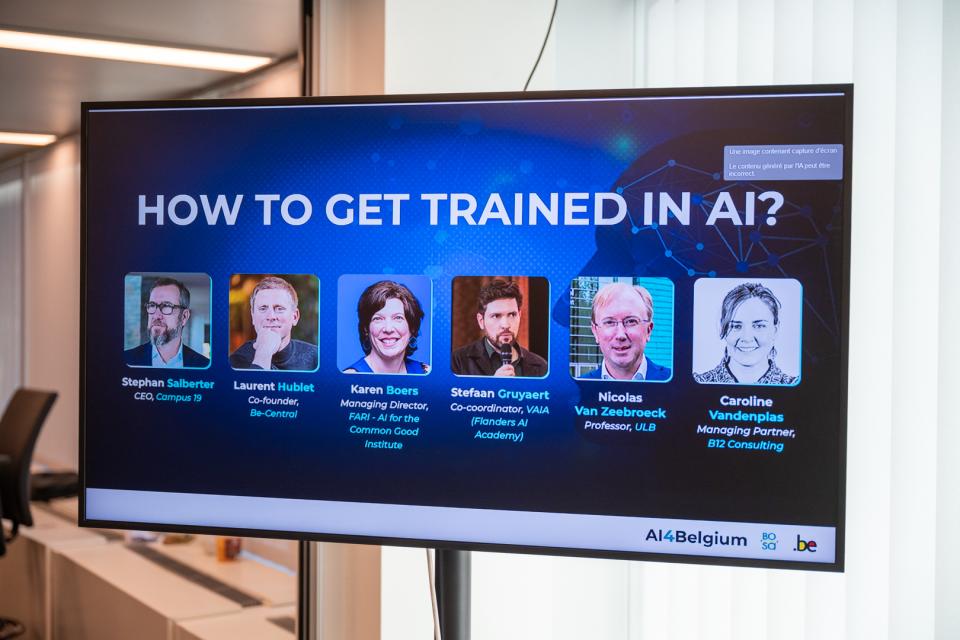
© Pictures: FPS Bosa / AI4Belgium
Urban Innovation and Digital Twins
On March 20, FARI launched its Data & the City series with the first of four sessions, “What if Brussels Had a Digital Twin?“. Part of FARI’s ongoing citizen engagement initiatives, this sold-out event brought together citizens and experts to discuss the societal and technical implications of digital twins, focusing on urban transformation and the technical aspects of digital modeling.
During this session, geographer Jacques Lévy (Chôros) examined the philosophical and societal implications of digital twins, while geomatics expert Roland Billen (University of Liège) explained their technical implementation. The discussion revealed two complementary approaches: understanding the “why” of urban transformation and the “how” of its digital modeling.
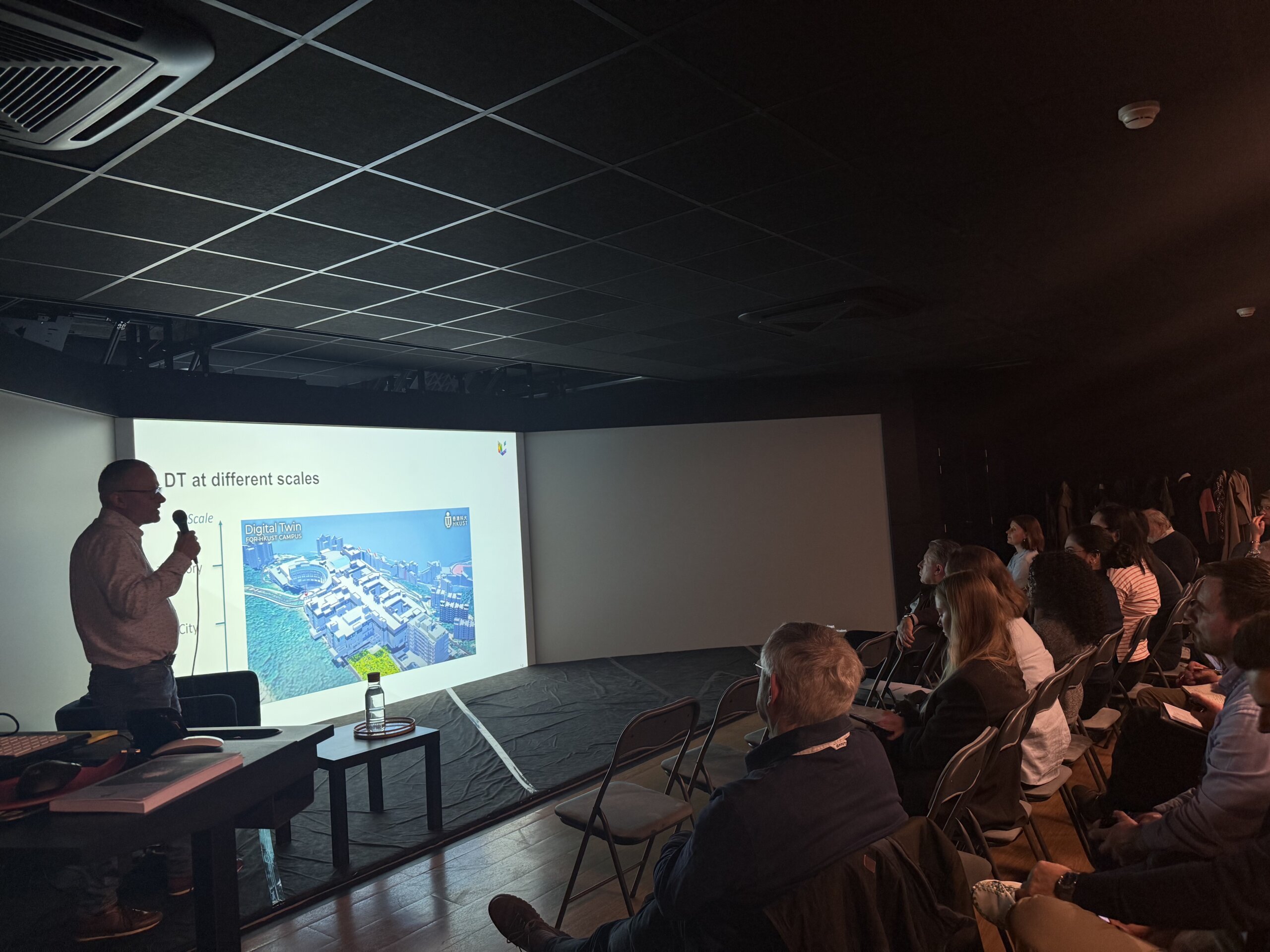
© FARI – AI for the Common Good Institute
AI Regulation and the AI Act
Martin Canter, Head of FARI Smart Region Hub, participated in a session on the implementation of the AI Act, which aims to regulate AI while fostering innovation. Discussions focused on harmonized regulations across the EU, regulatory sandboxes for SMEs, and balancing regulation with global competitiveness.
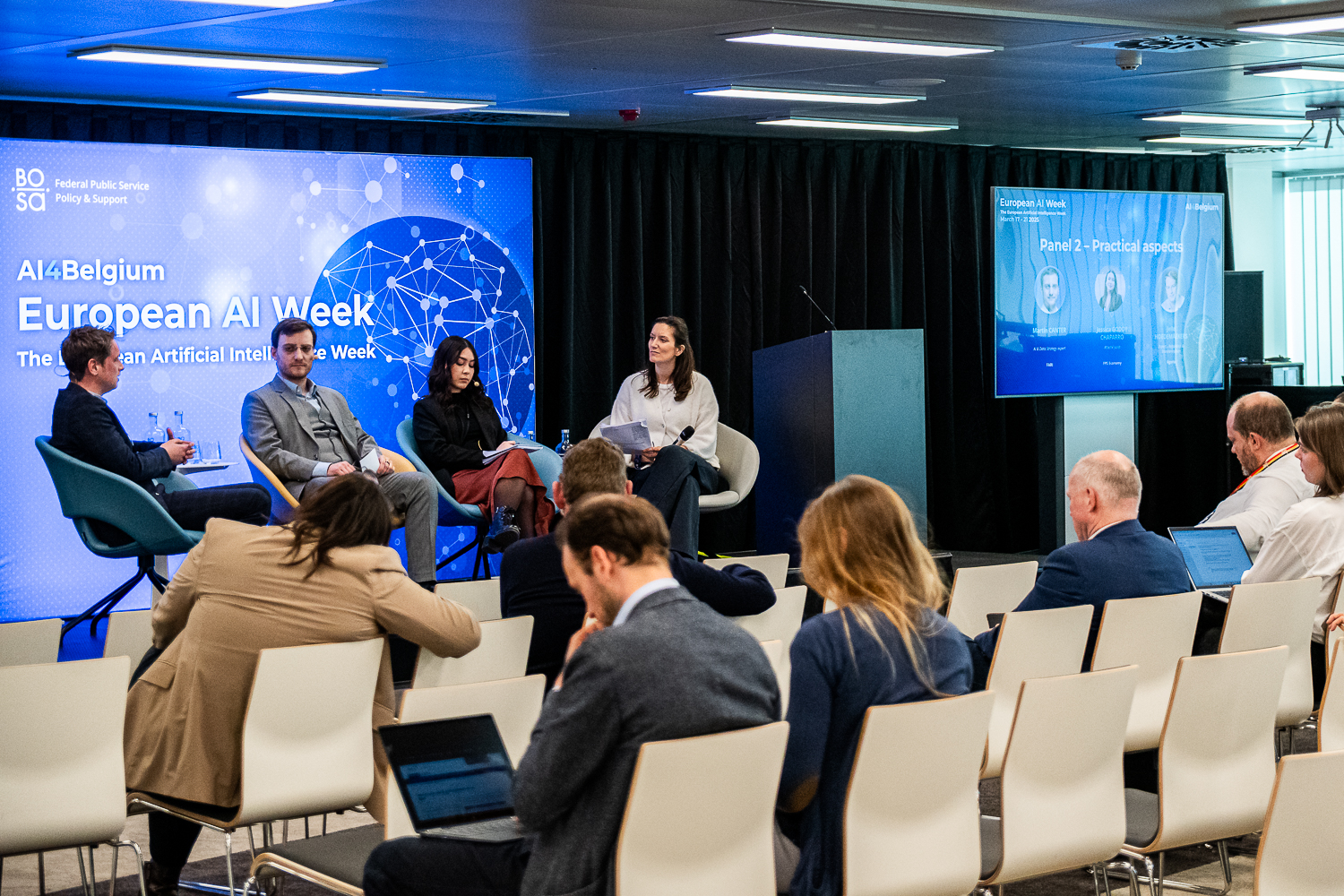
© Pictures: FPS Bosa / AI4Belgium
AI Ethics and Governance
This week also marked the launch of the ALLY guide, with a workshop that brought together over 25 participants to discuss AI ethics and governance. Developed in collaboration with FARI and the Knowledge Centre Data & Society (KDM), ALLY provides a structured approach to responsible AI governance, offering practical steps for organizations to integrate trust and accountability into their AI strategies.
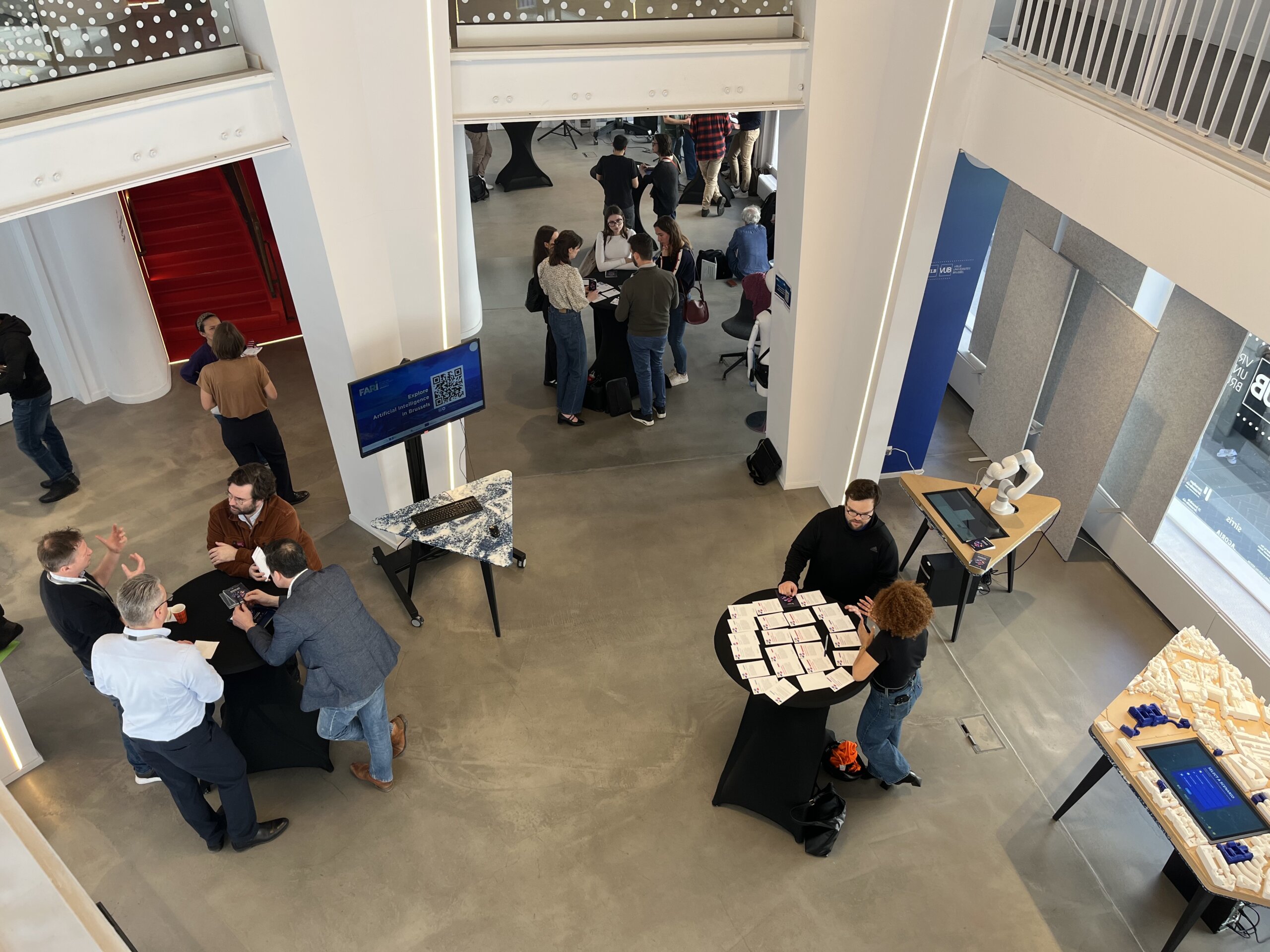
© FARI – AI for the Common Good Institute
Cultural Heritage and the Impact of AI
FARI also hosted an event showcasing Belgian advancements in AR/VR/XR, and digital twins for cultural heritage preservation. As part of the INVISIBLE Festival Europe’s first augmented art festival dedicated to forgotten historical figures—this event underscored the role of AI in reviving lost voices and enhancing the visibility of women in technology.
Artists, entrepreneurs, and tech enthusiasts participated in a Happy Hour and joined a discovery tour of the CAVE (Computer Augmented Virtual Environment), led by Susheel Nath, CAVE manager, fostering meaningful exchanges, inspiring collaborations, and strengthening the presence of women in innovation and technology.
Future-oriented discussions
FARI managing director, Karen Boers, wrapped up the week by participating in the “Redefining AI: A Vision for the Future” event. Speakers discussed the future of artificial intelligence, addressing key themes such as the impact of discriminatory behavior and how to navigate it, the rising threat of deepfakes and the urgency of digital literacy and automated verification, and the increasing accessibility of AI tools for video creation and live streaming. Ultimately, AI opens the door to new possibilities, with significant career opportunities for those who want to make a lasting impact.
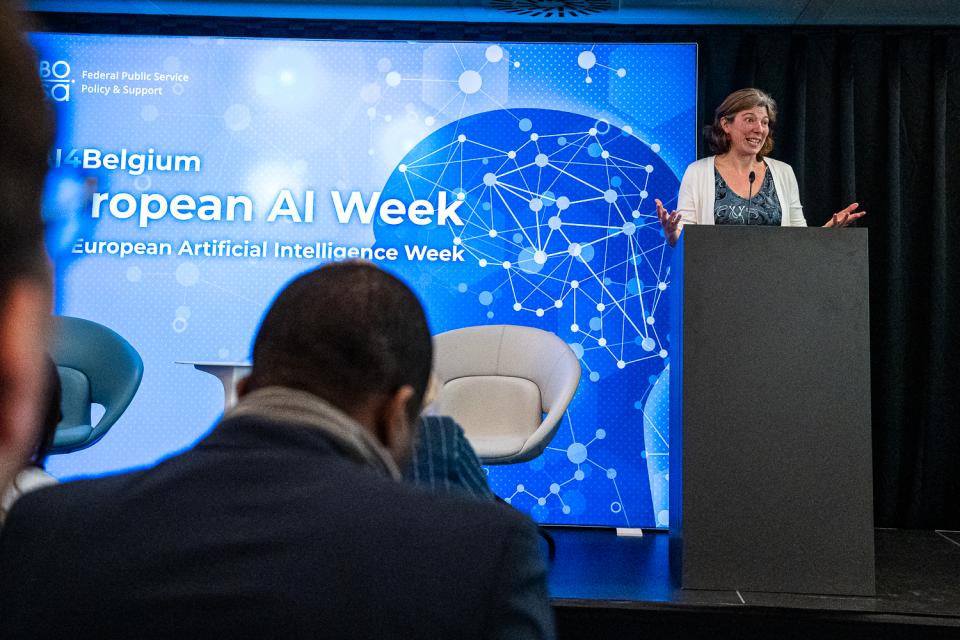
© Pictures: FPS Bosa / AI4Belgium
Share
Other news